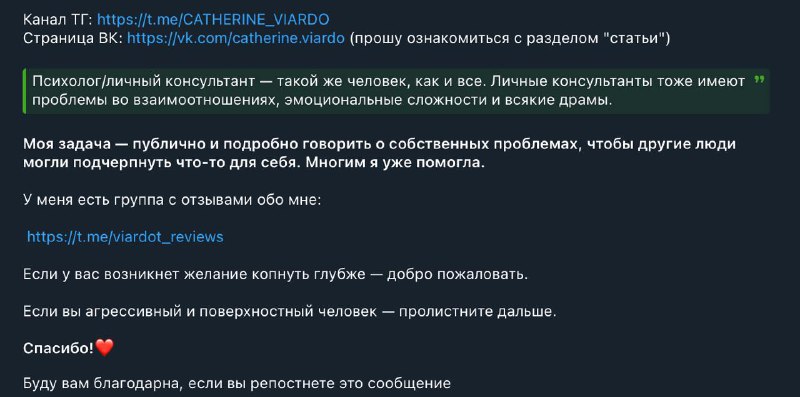Обещал Катарине Эдуардовне опубликовать ее пост. Публикую. Не считаю, что ее конфликт завершен. Больше похоже на холодное перемирие по описанию. Добавлю от себя, что у Катирины вообще нет высшего образования и она не видит в этом проблемы. Попробую написать другой стороне и уточнить ее позицию. Материал сознательно публикую скриншотами, что бы повысить транзакционные издержки перехода по ссылкам. Слишком напоминает примитивную рекламу. #Виардо_Катарина
group-telegram.com/blackpsylist/564
Create:
Last Update:
Last Update:
Обещал Катарине Эдуардовне опубликовать ее пост. Публикую. Не считаю, что ее конфликт завершен. Больше похоже на холодное перемирие по описанию. Добавлю от себя, что у Катирины вообще нет высшего образования и она не видит в этом проблемы. Попробую написать другой стороне и уточнить ее позицию. Материал сознательно публикую скриншотами, что бы повысить транзакционные издержки перехода по ссылкам. Слишком напоминает примитивную рекламу. #Виардо_Катарина
BY Черный список психологов


Share with your friend now:
group-telegram.com/blackpsylist/564
